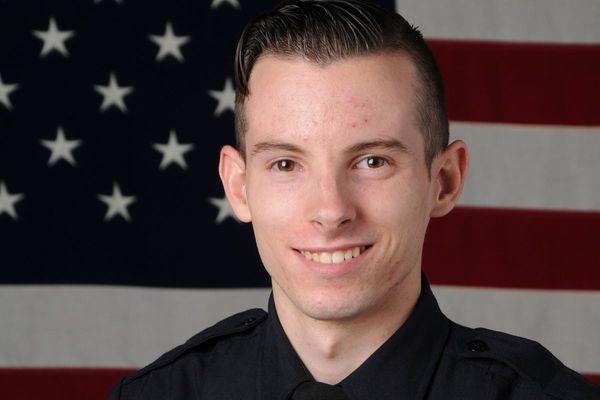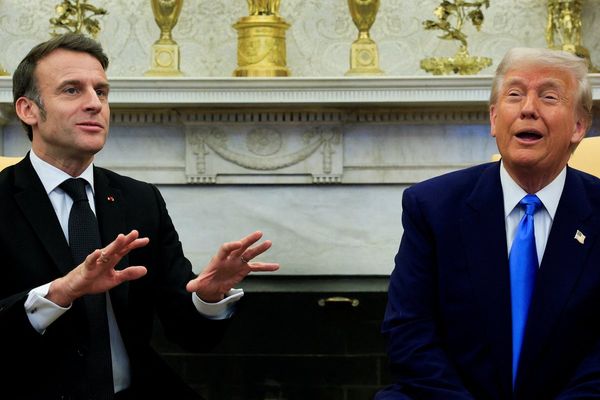
Thousands of unaccompanied children, including one aged two years old, have been subjected to a little-known immigration enforcement operation, which includes police fingerprinting and photographing, soon after arriving in the UK.
Operation Innerste is a multi-agency initiative that was rolled out in 2018 and is designed to protect children newly arrived in the UK from falling into the hands of traffickers. Home Office sources said the two-year-old whose details were recorded as part of this operation was not photographed or fingerprinted and was accompanied by their teenage mother.
However, child protection advocates say the Children Act already provides the powers to protectunaccompanied child asylum seekers and expressed concern about the early involvement of police rather than social workers.
Freedom of information data obtained by the Guardian reveals that from 2018 until 30 June 2022, 2,177 children aged between two and 18 were “safeguarded” by the operation. In the first six months of 2022, one unaccompanied two-year-old was documented by Operation Innerste. Home Office sources declined to provide information about this case.
Ahmed Aydeed, of Duncan Lewis solicitors, said: “Our clients have had their biometric data taken, without consenting and without an appropriate adult present. It’s a safeguarding operation that overreaches its authority, purpose and lacks safeguards.
“Most children ‘safeguarded’ under this operation do not have any support during the interview and may not have anyone to advise them; appropriate adults only attend where possible and there are no requirements for legal representatives to be present either.”
In one case in June 2022, a 16-year-old Eritrean boy arrived in London from Calais in the back of a lorry. He sought help from a youth club for young asylum seekers and refugees called Da’aro. Benny Hunter, a youth worker and migrant rights campaigner, contacted Lambeth council’s social services and asked it to take the exhausted and traumatised boy into care. However, council officials refused and insisted he was first taken to the police station for Operation Innerste checks.
In a Twitter thread about the incident, Hunter raised concerns about the shift from first responders being children’s social workers to being police and immigration enforcement.
“This was a seriously vulnerable child whose welfare needs are being put second to the needs of the state to police and enforce immigration rules. Children are being policed before they can access child protection,” he said.
In a statement about the incident, a Lambeth council spokesperson emphasised the need to protect vulnerable children such as the Eritrean boy and said he was eventually placed in foster care and was doing well.
The spokesperson added: “However, concerns have been raised regarding this case and we will now conduct a review to see if improvements can be made in our operations.”
The Operation Innerste guidance states that the aim of the operation is to build an early rapport with the child and to “lock in” their identity and that the first responder, “usually the police”, will conduct a welfare operation and take photos and fingerprints. “There is no requirement to obtain consent from the child,” the guidance says.
The chief executive of the anti-trafficking organisation Every Child Protected Against Trafficking (ECPAT UK), Patricia Durr, said: “ECPAT UK remains concerned at the numbers of and the disproportionately high rate that child victims of trafficking and unaccompanied children go missing. Requiring that unaccompanied children first go to the local police is not a safeguarding response, it is not in their best interests and is in contravention of statutory obligations and policy guidance.”
Philip Ishola, the chief executive of the organisation Love146 that provides support for child trafficking survivors and campaigns to end child trafficking and exploitation, said: “With Operation Innerste there is no mechanism for an immediate multi-agency response in real time. I believe this is more suited for data collection for the purposes of immigration and asylum. It pre-empts and corrupts the existing rapid child social services multi-agency safeguarding and protection of children mechanism.
“The delivery of ongoing care and protection of children sits firmly with social services, with police and immigration enforcement supporting, not taking it upon themselves to lead these processes.”
A Home Office spokesperson said: “We make no apologies for safeguarding unaccompanied child asylum seekers, and it is completely inappropriate to suggest that police should not be part of this process. The police conduct vital safeguarding checks for unaccompanied child migrants who arrive into the UK. Information is shared with the Home Office and local authorities to support these children’s welfare.”
• This article was amended on 4 October 2022 to add details regarding the two-year-old child subject to Operation Innerste. Prior to publication the Home Office said it was unable to provide information about the child’s circumstances; however, a department source later clarified that the child was not photographed or fingerprinted and that they were accompanied by their mother.







